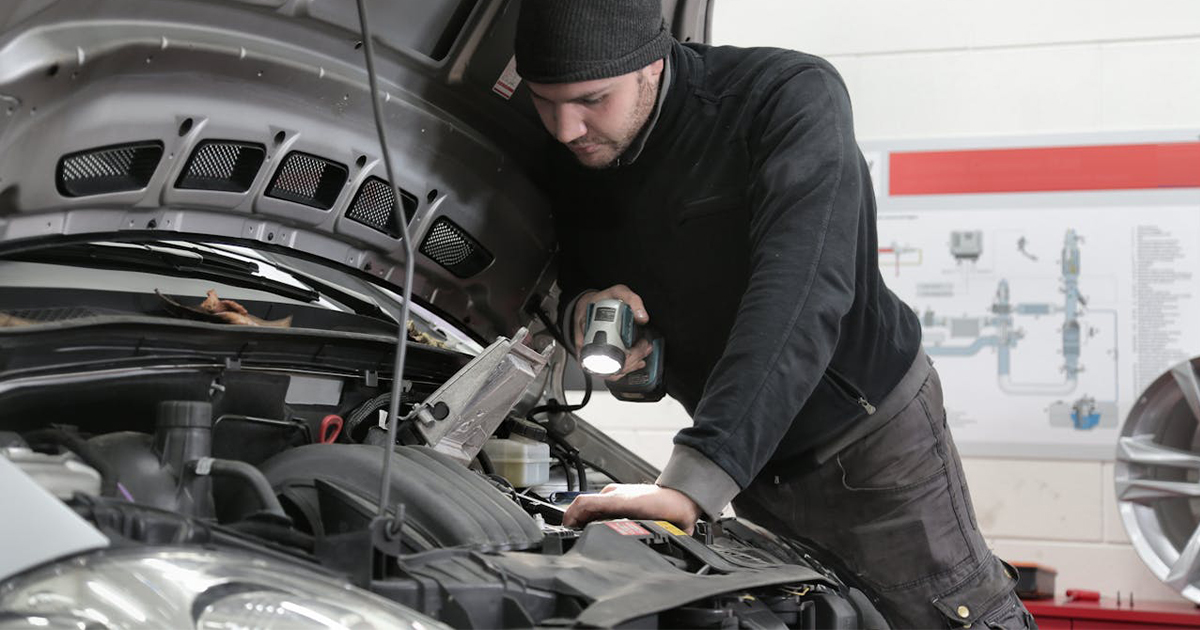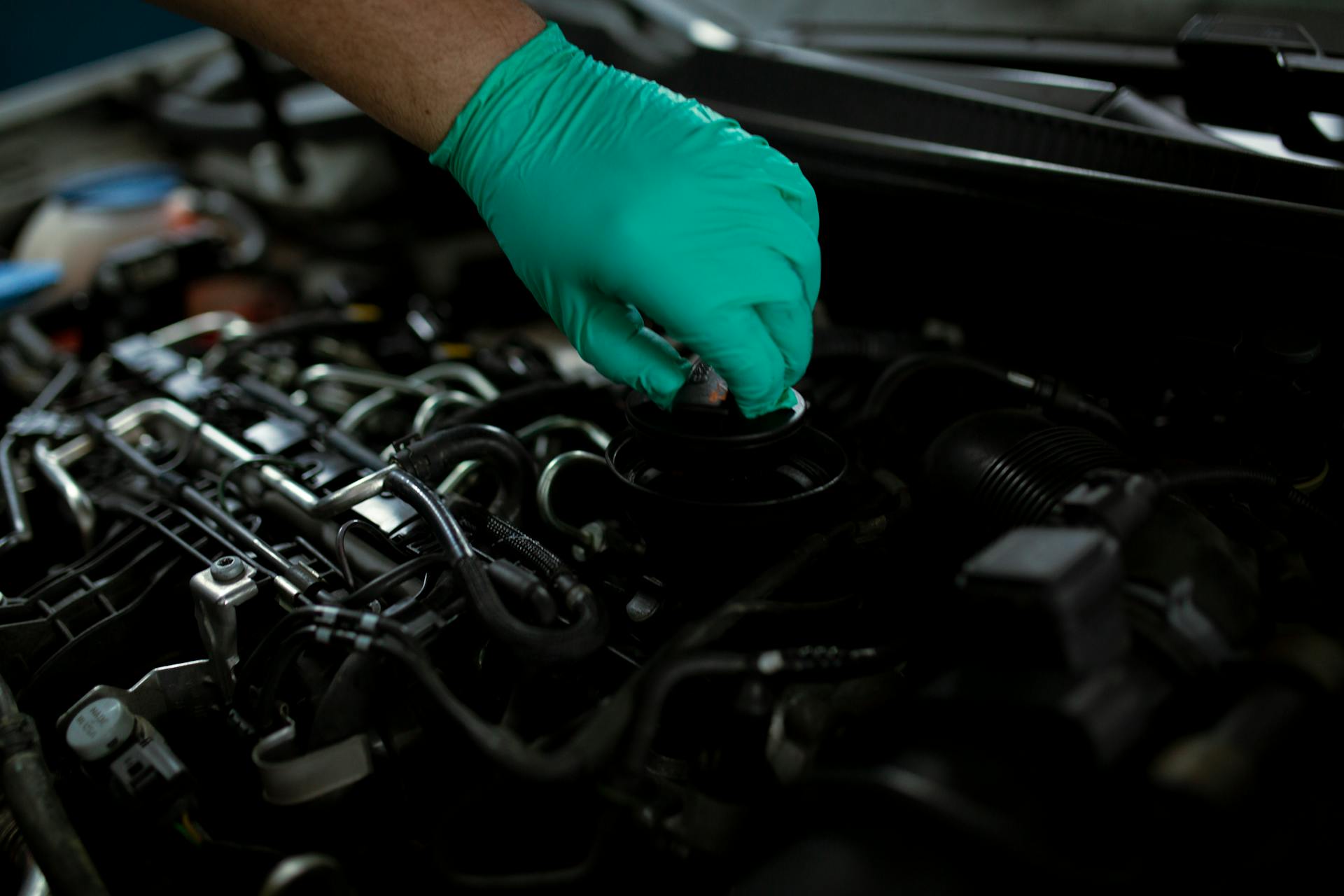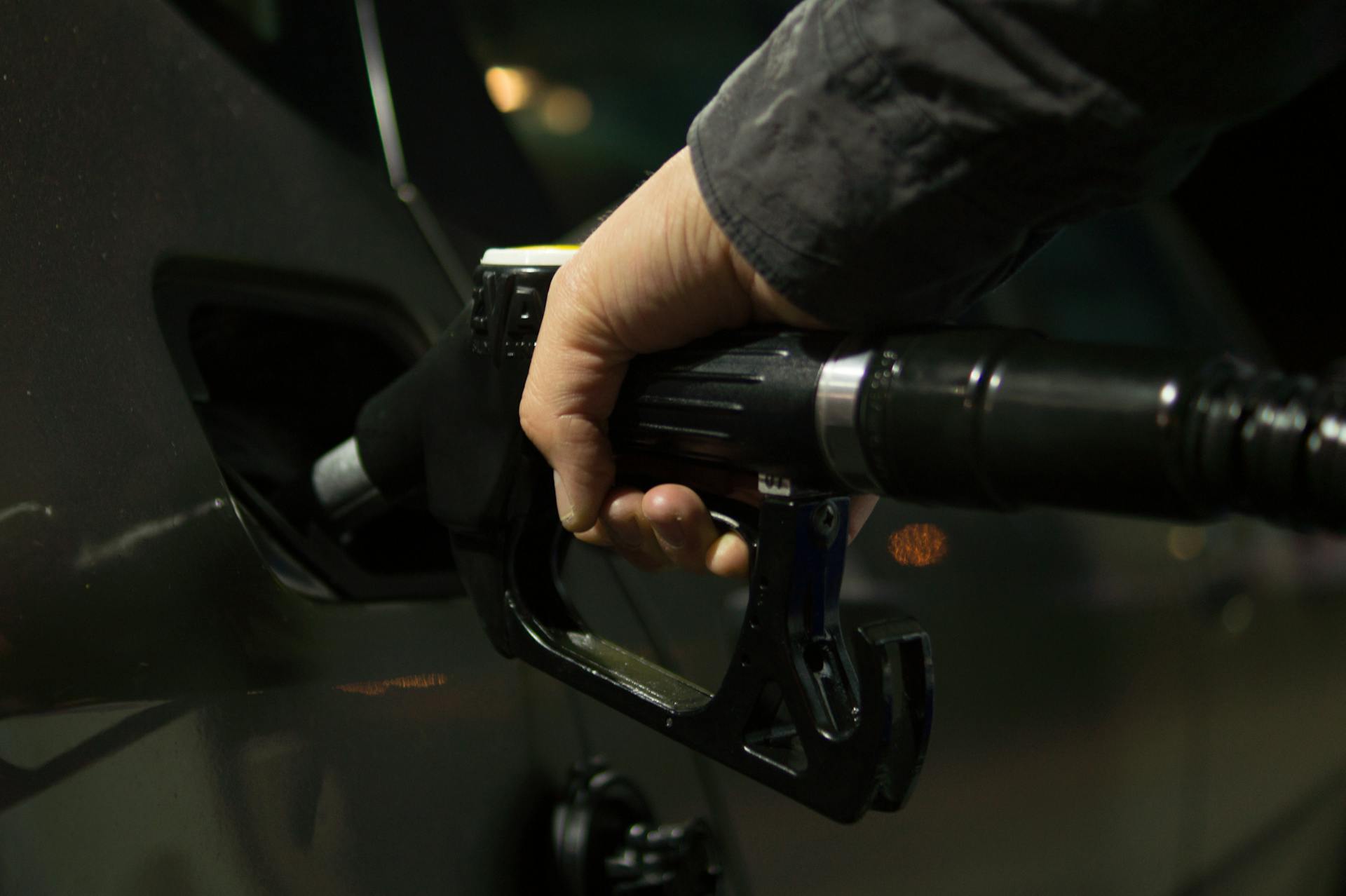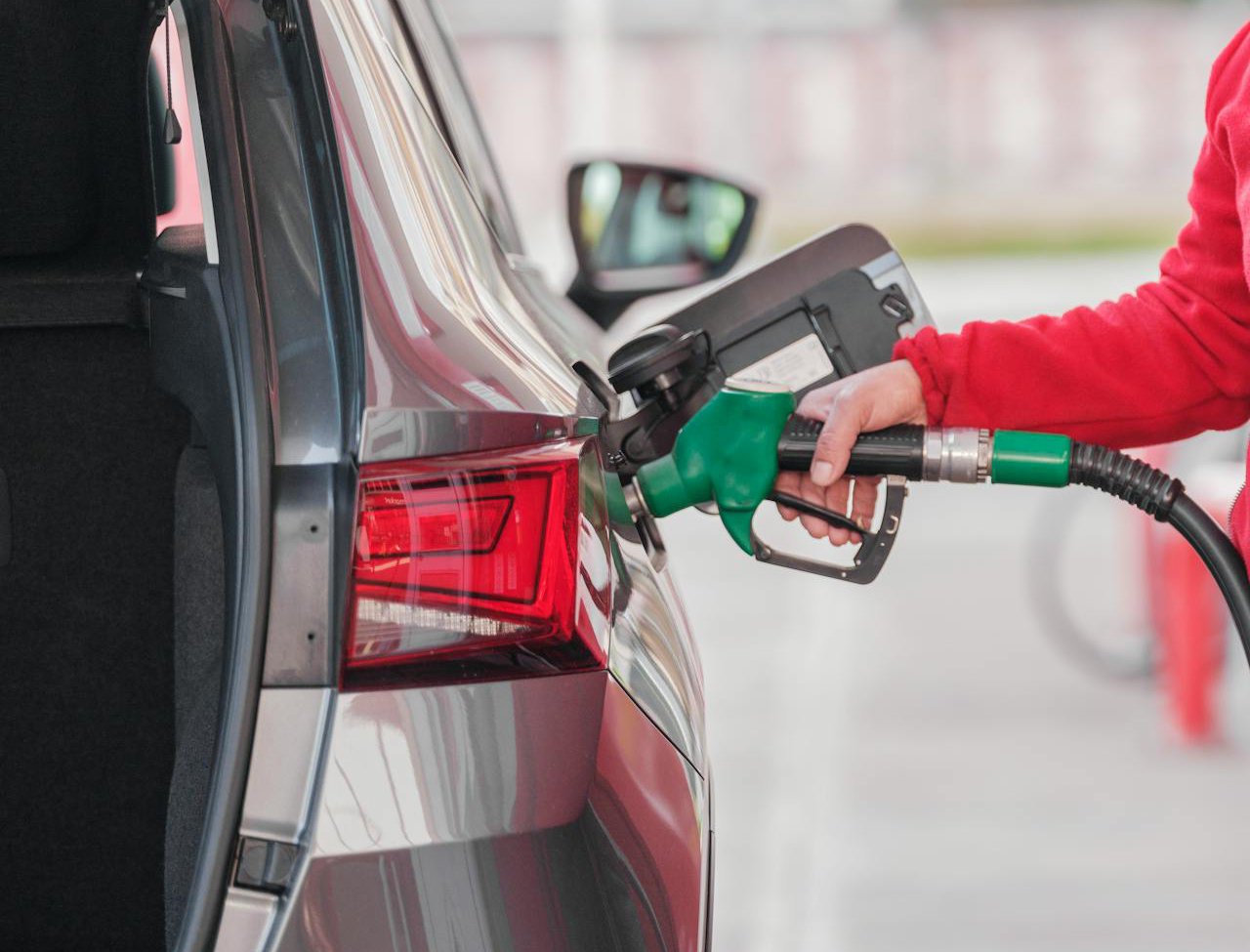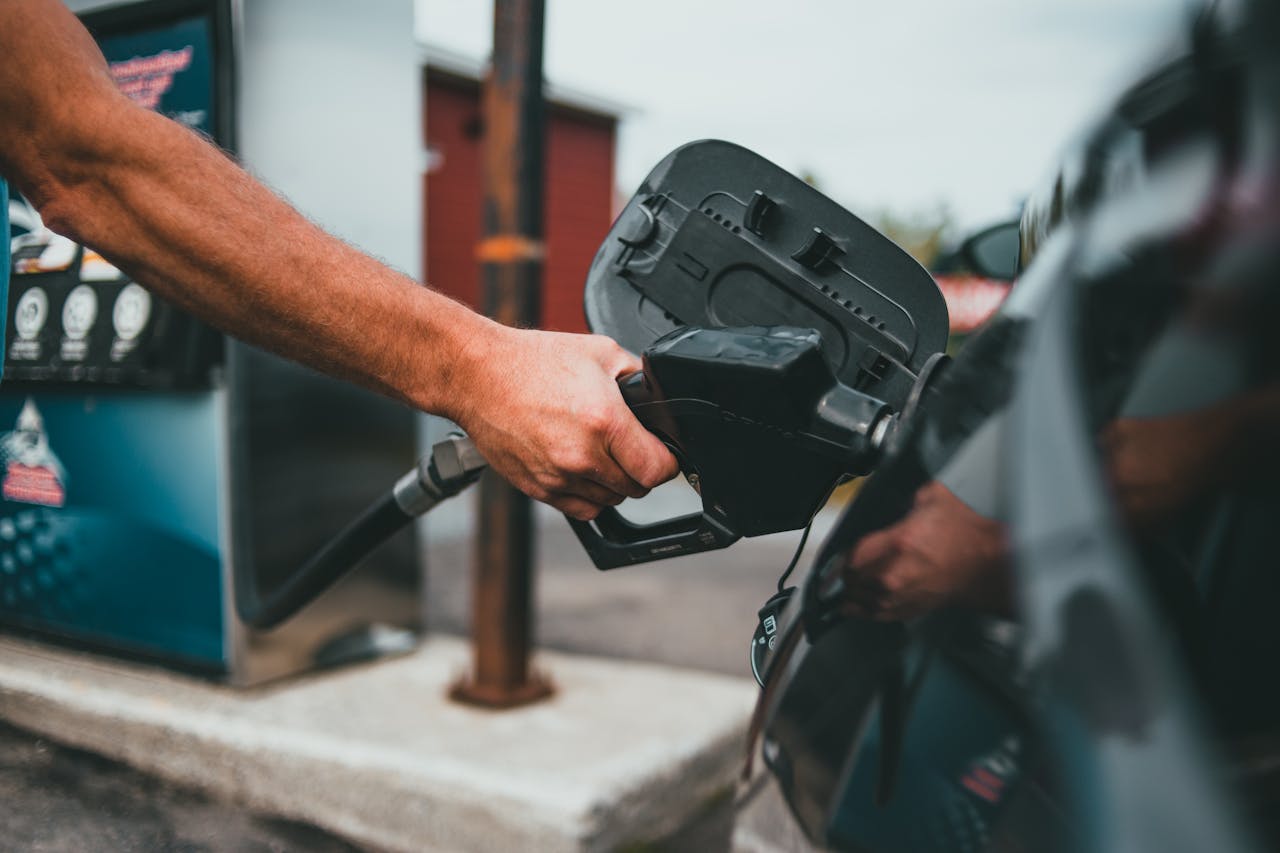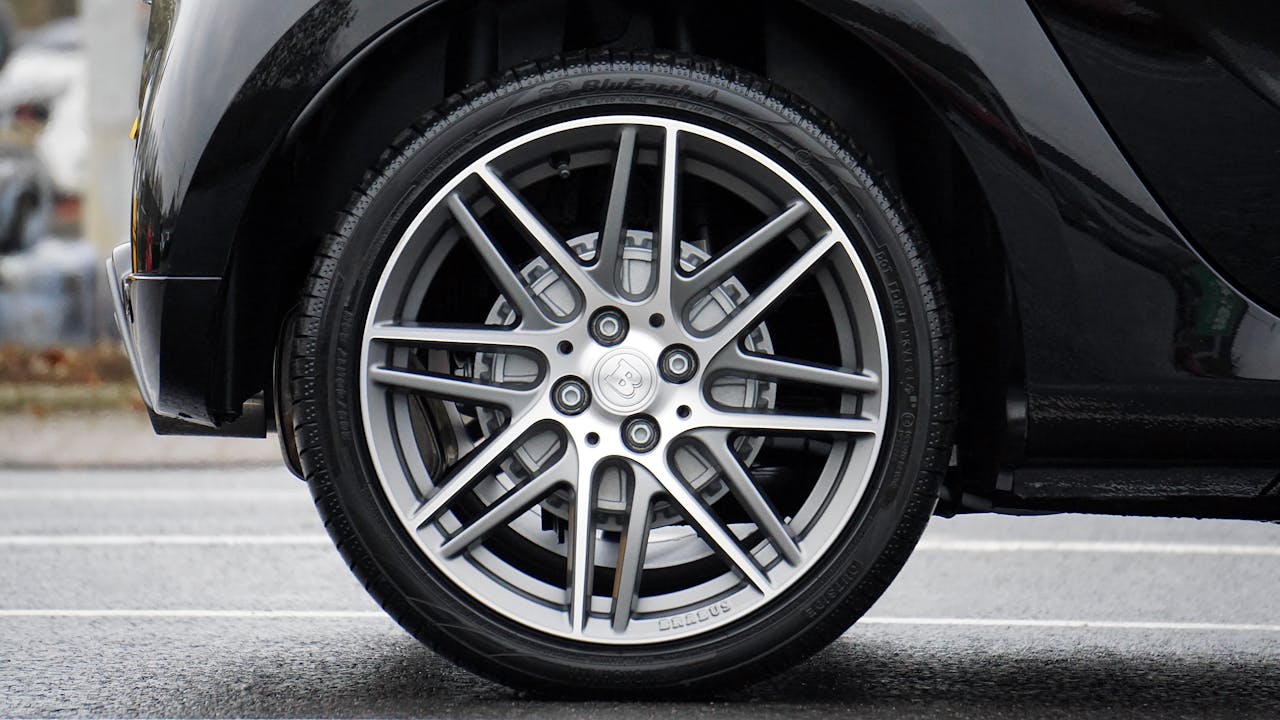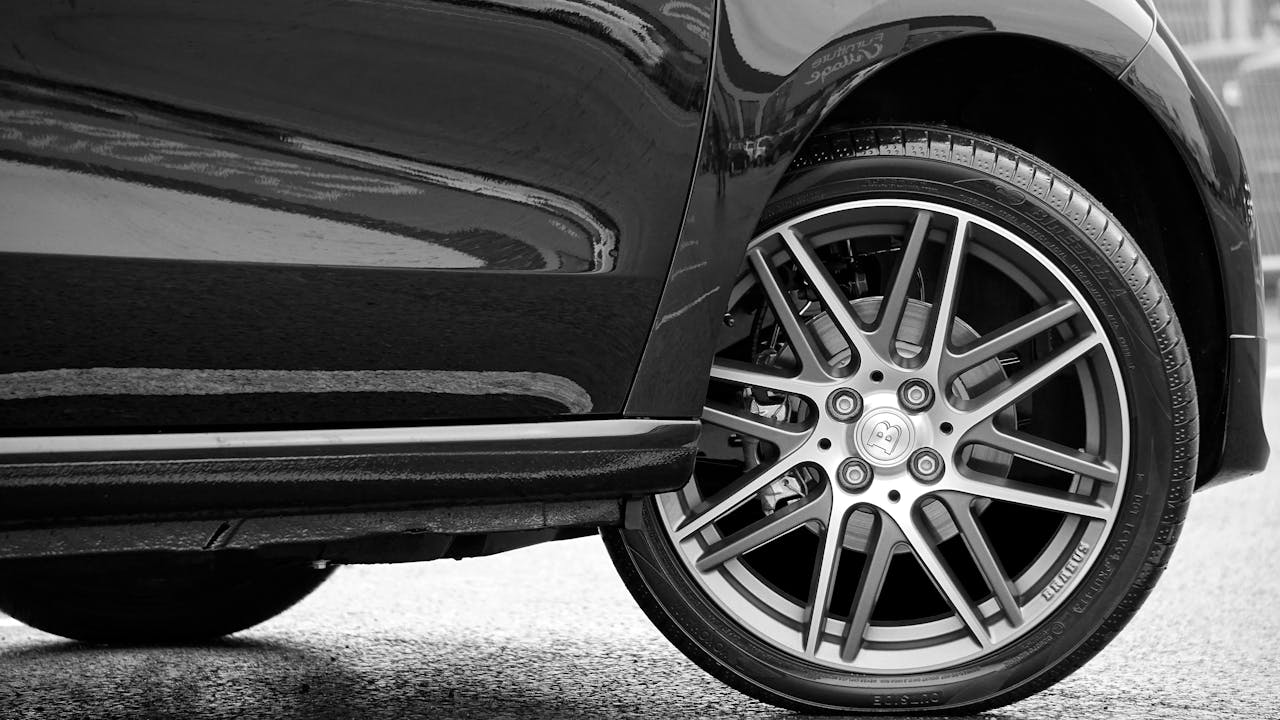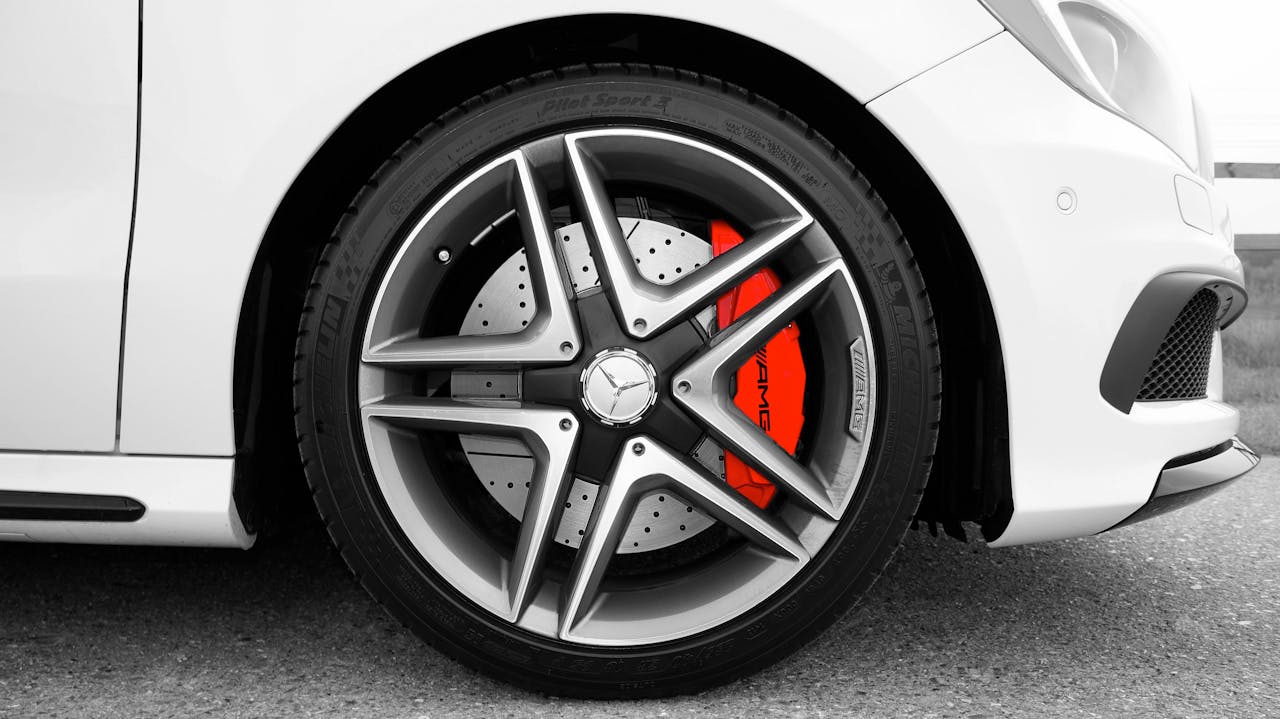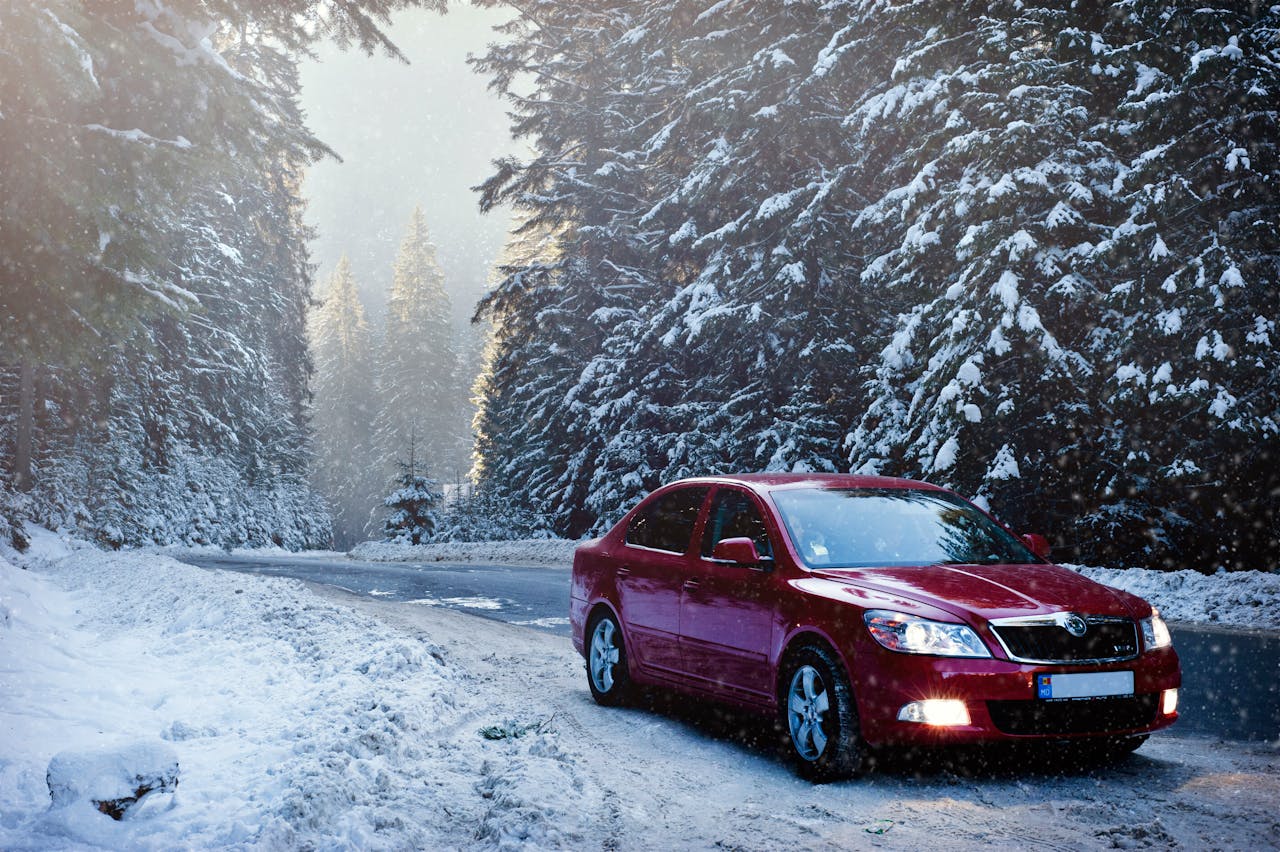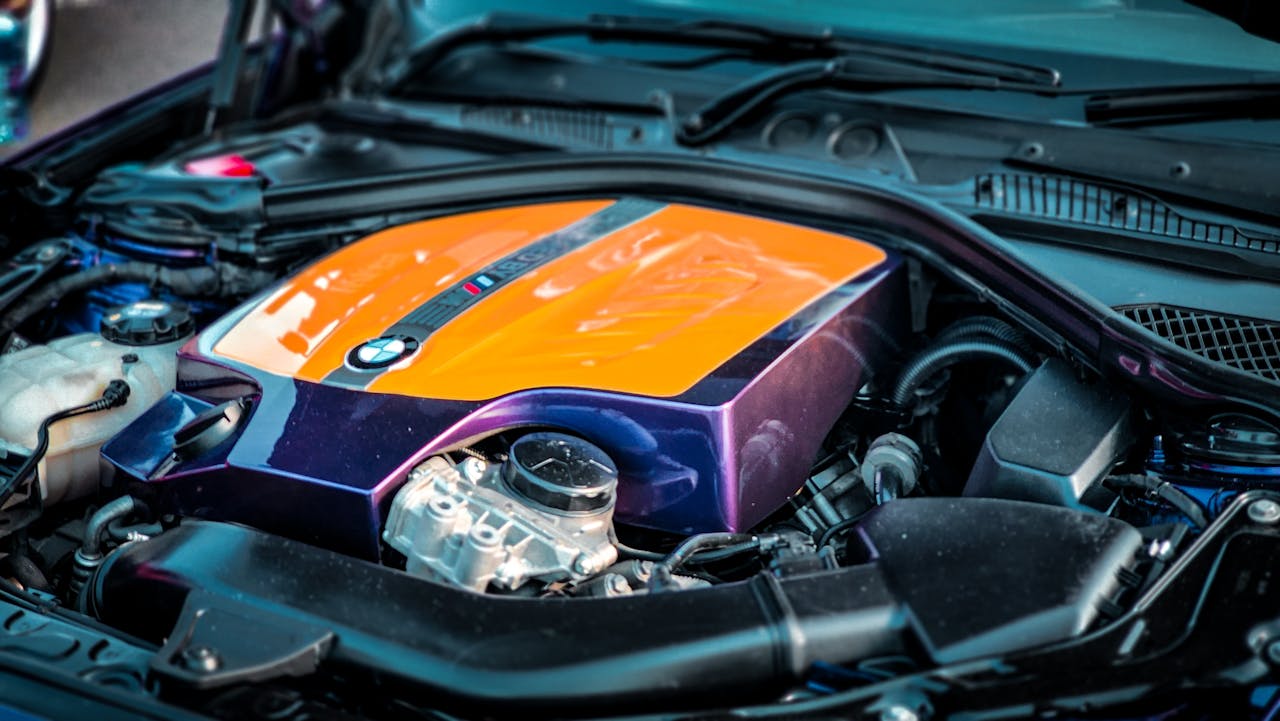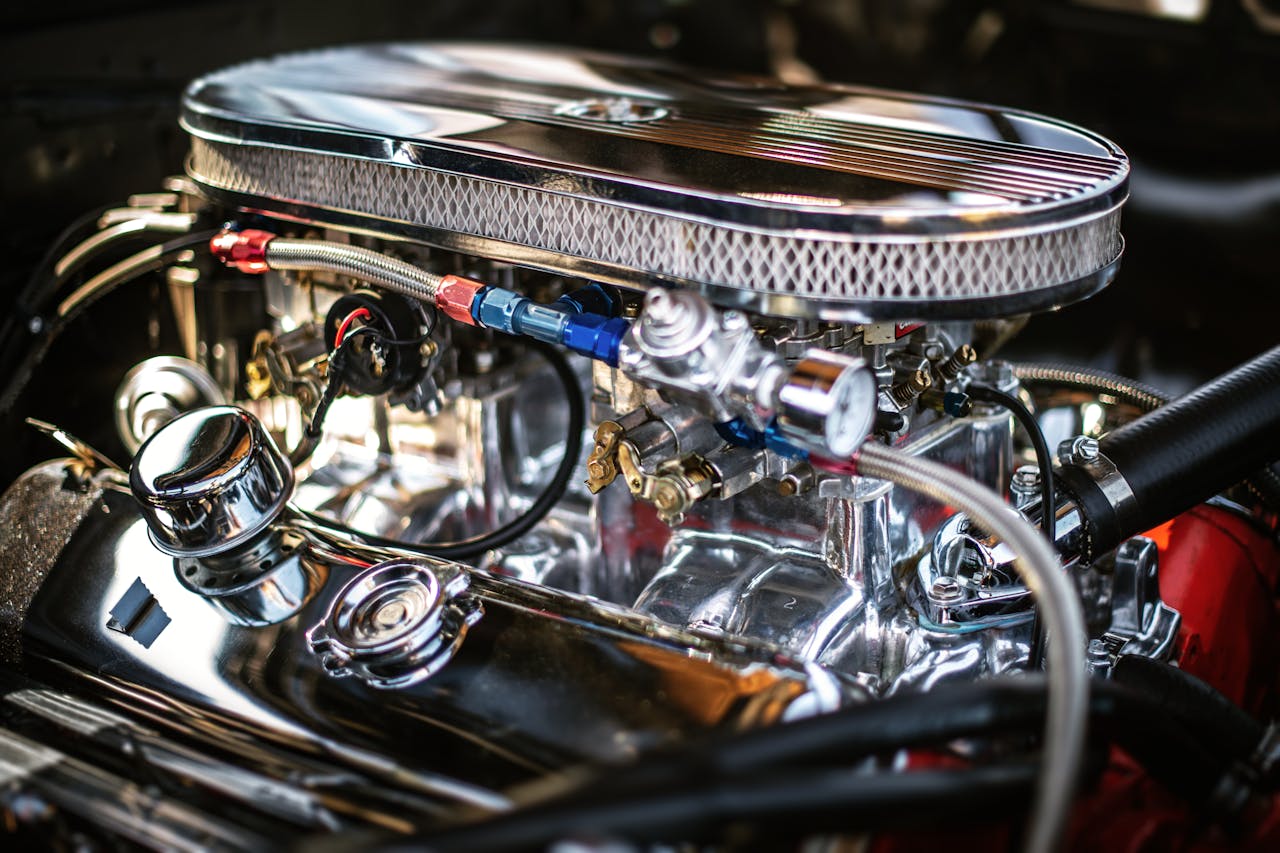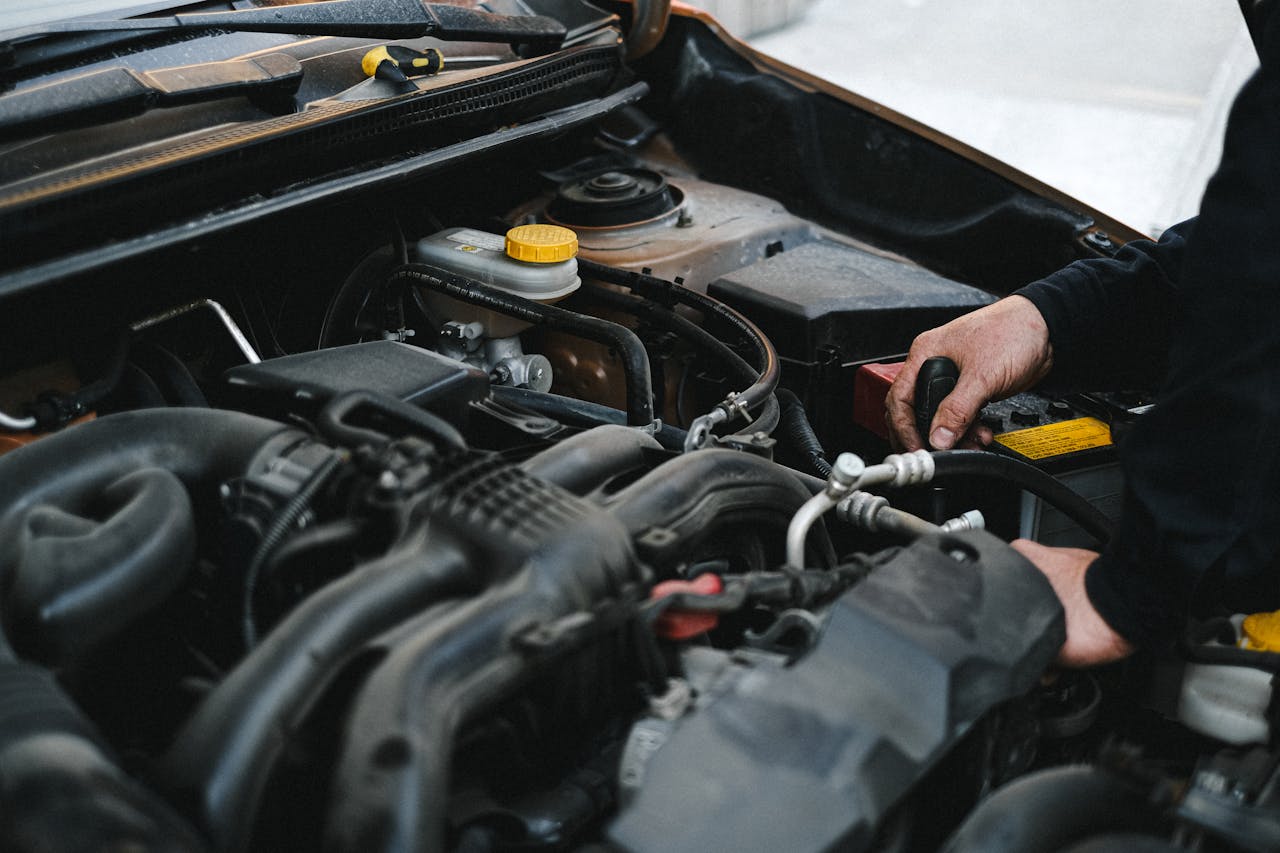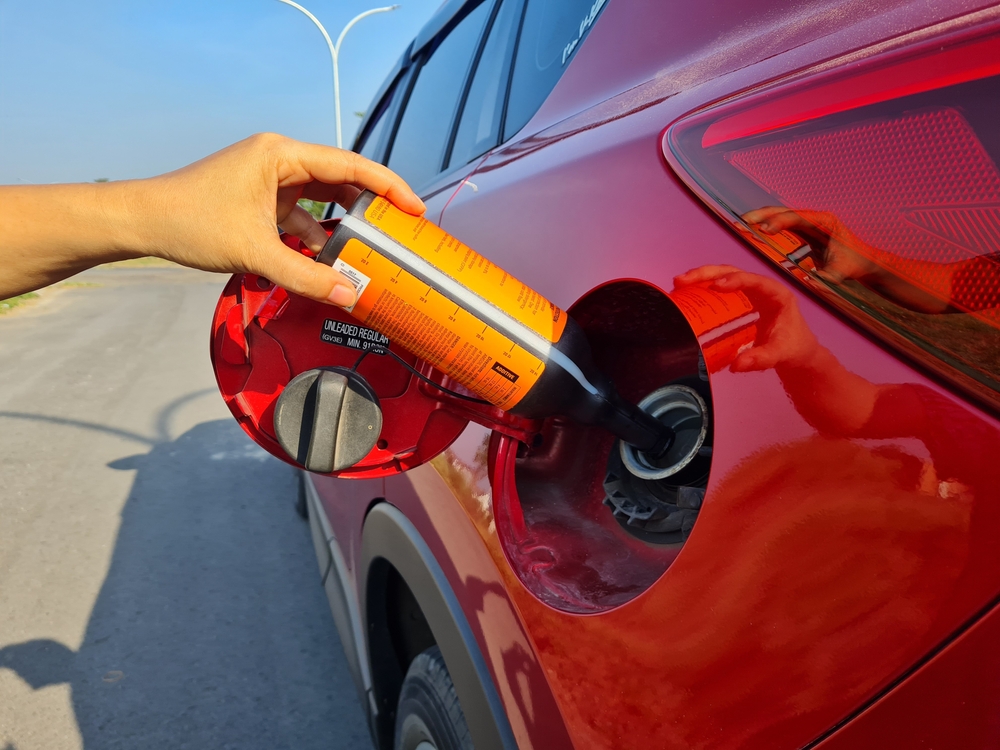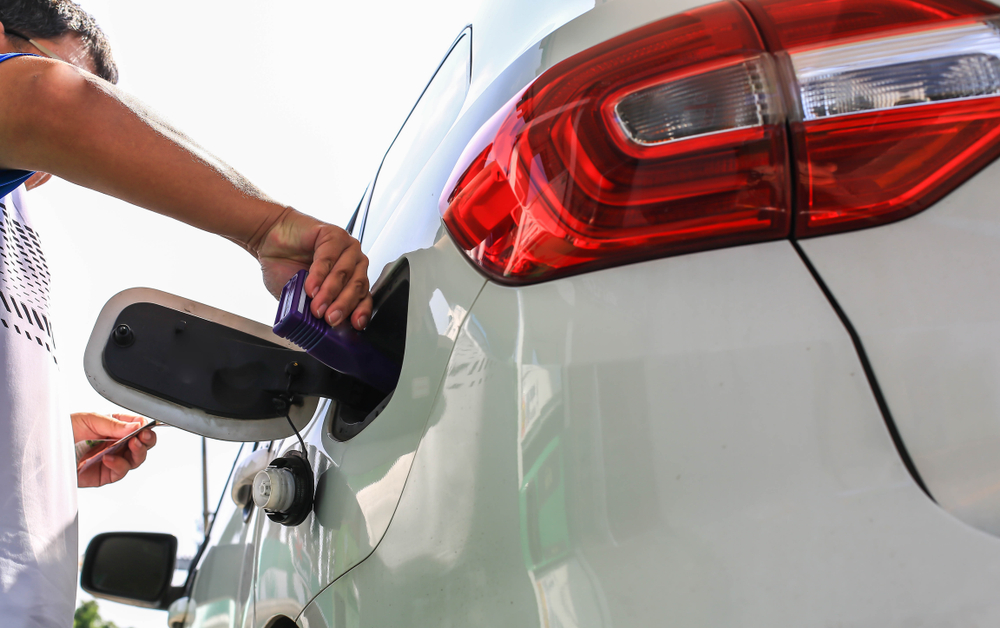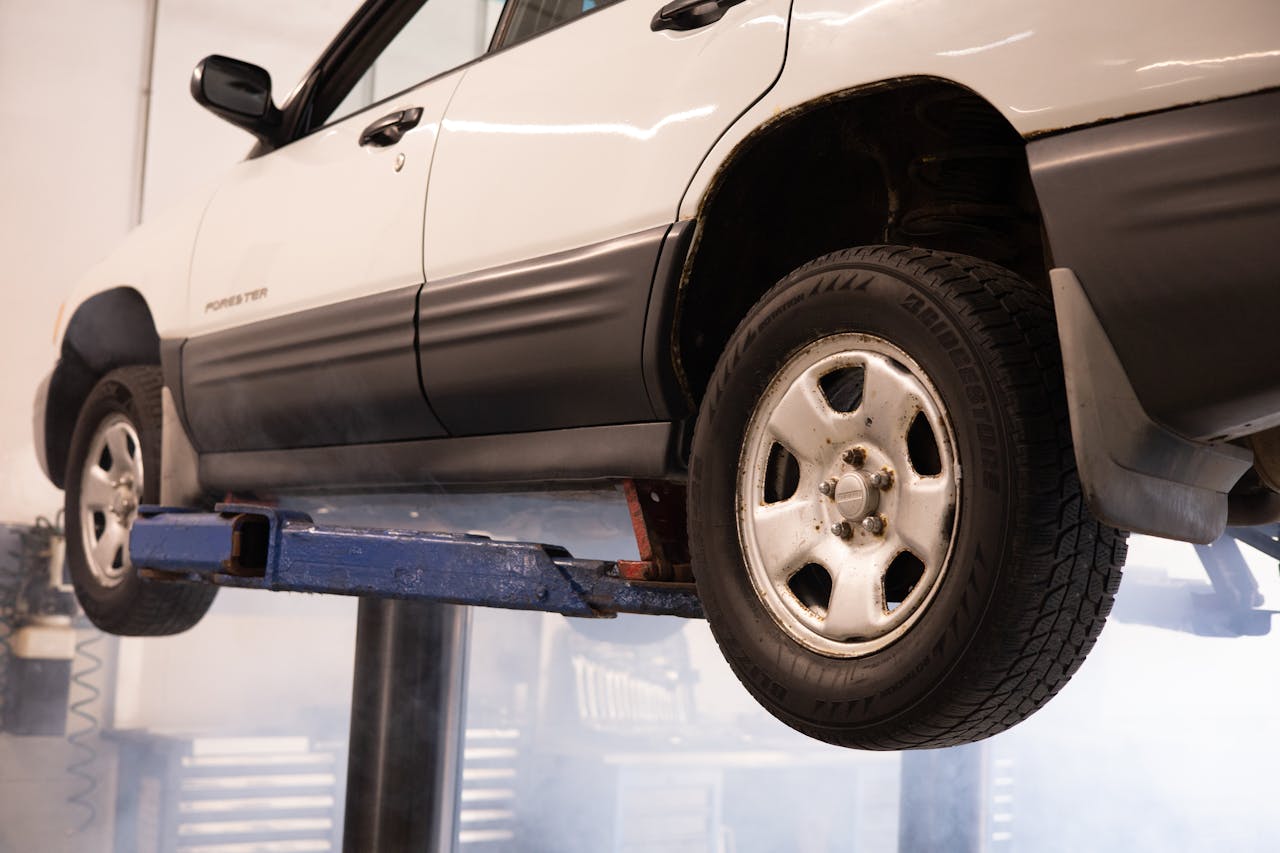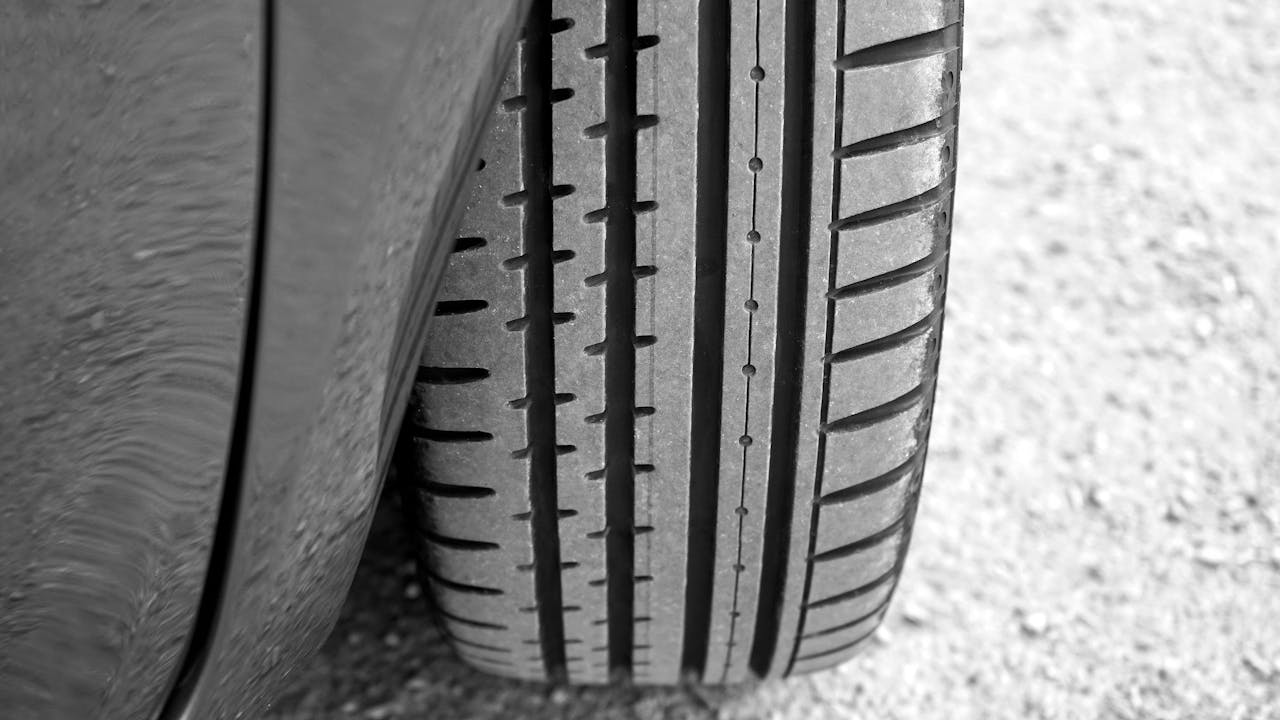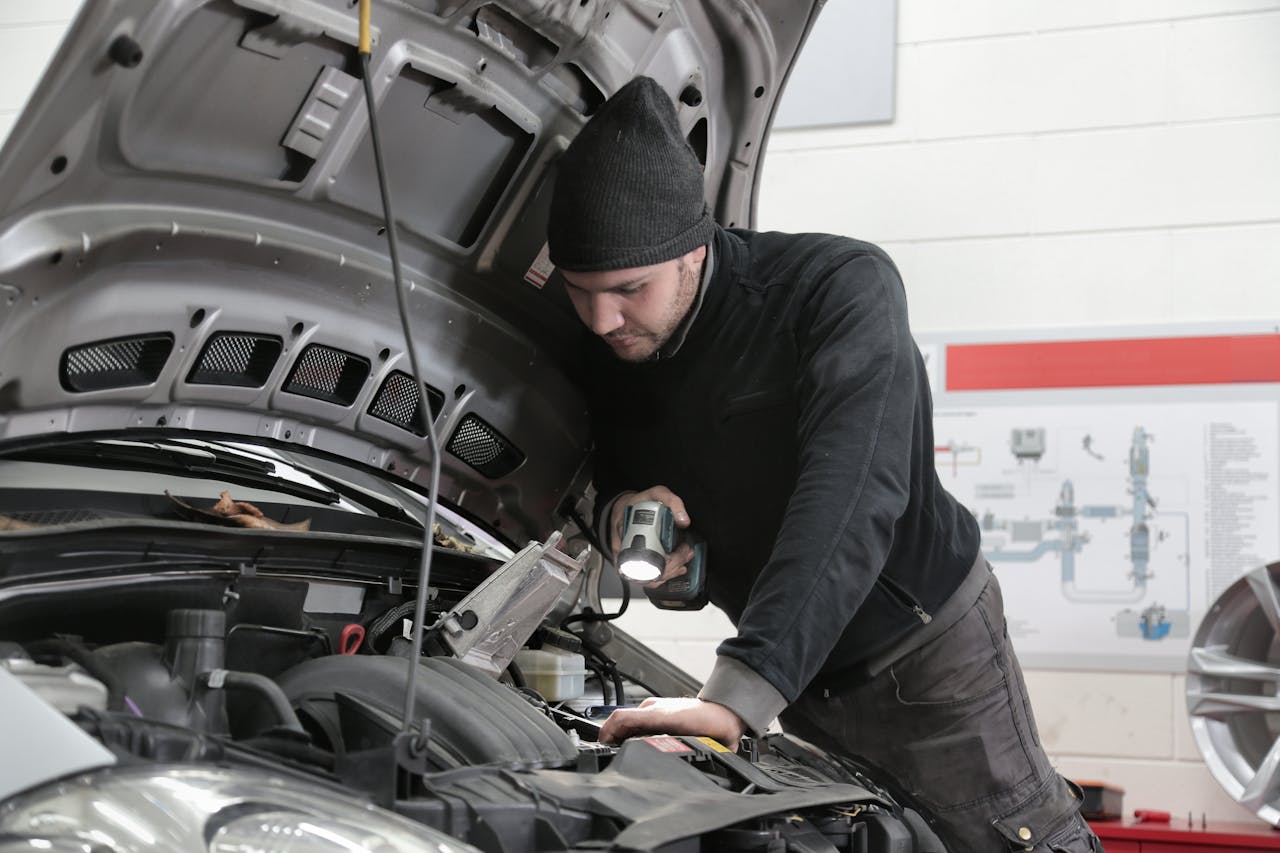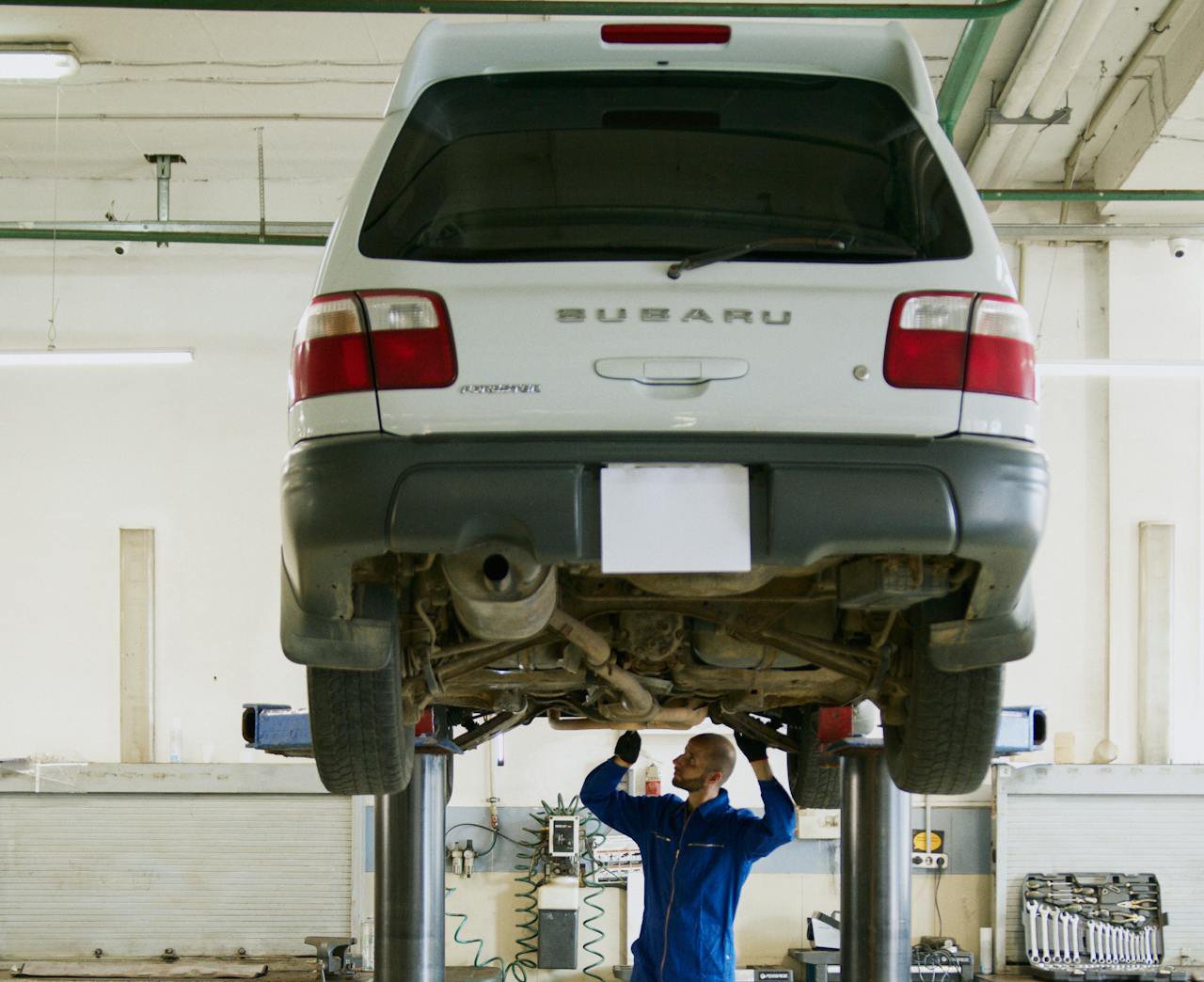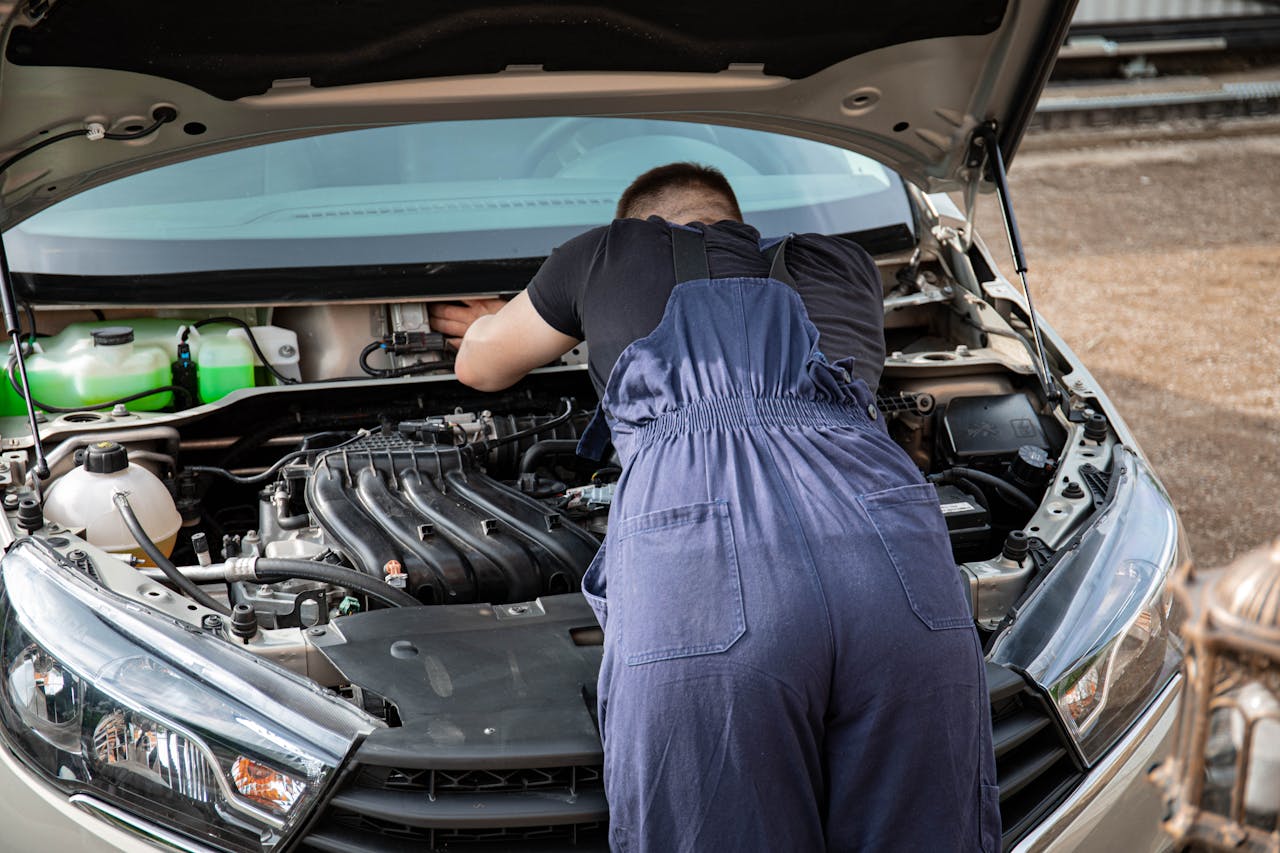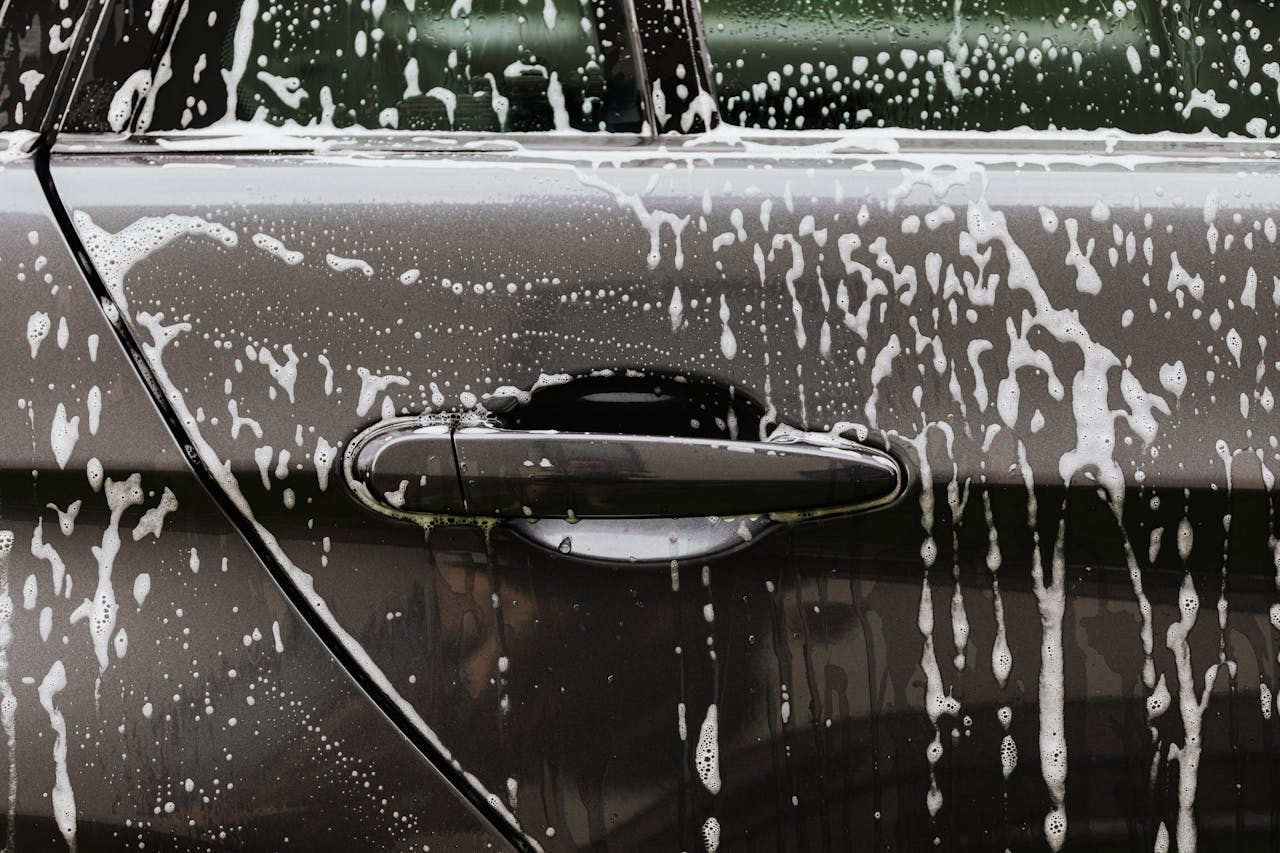Truth Or Fiction?
If you still believe these car maintenance myths, you could be wasting hundreds of dollars each year.
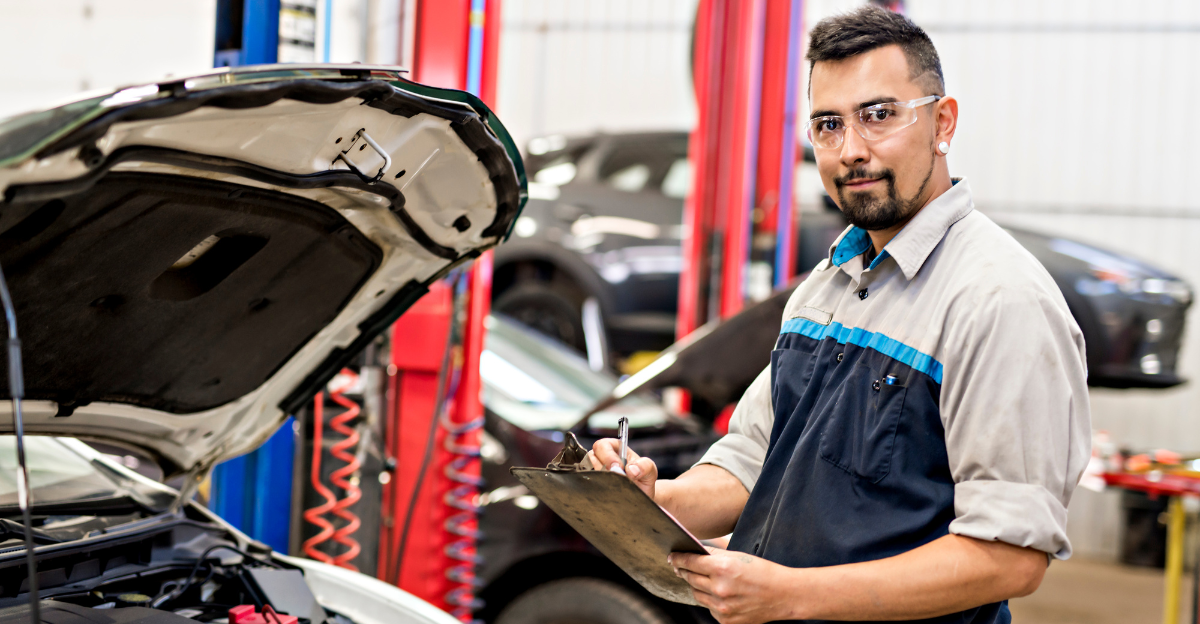
Myth: You Need An Oil Change Every 3,000 Miles
Most drivers still think they’ve got to change their oil every 3,000 miles—and mechanics love to keep that myth alive with those little reminder stickers on your windshield. Sure, it’s great for their bottom line, but the truth is modern cars just don’t need oil changes that often.
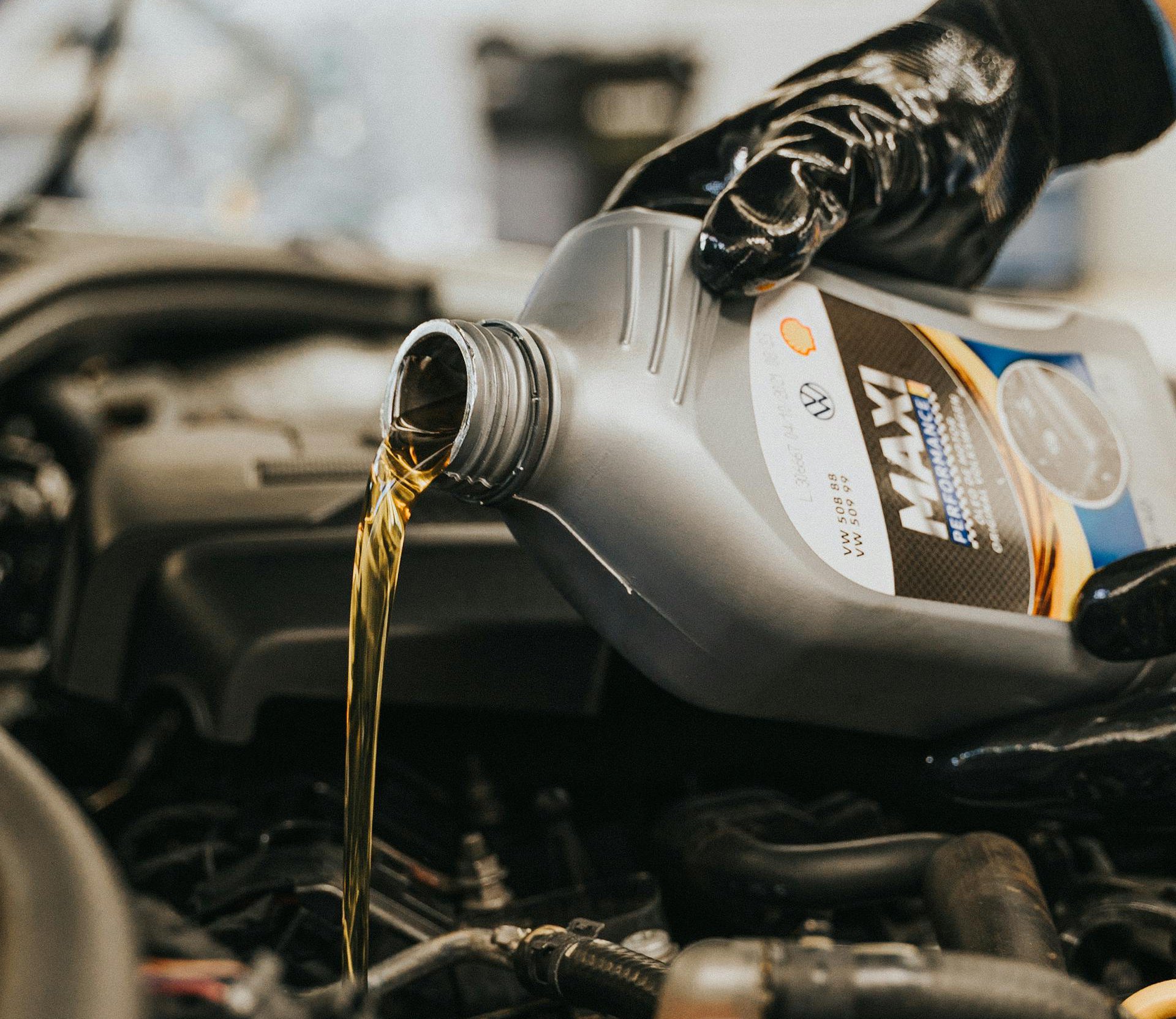 Daniel Andraski, Daniel Andraski
Daniel Andraski, Daniel Andraski
Old Guidelines
The 3,000-mile guideline comes from a time when engines and motor oils were less advanced. Today, many cars can go anywhere from 5,000 to 10,000 miles between oil changes, but this varies by vehicle. Check your owner's manual for specific recommendations. Extending the interval between oil changes saves money, as the cost ranges depending on the oil type.
Eco-Friendly
In addition to less of an impact on your wallet, holding off on that oil change is also good for the environment. Longer intervals between changes equals less oil waste, which keeps landfills and groundwater cleaner. However, older vehicles might still need more frequent changes, so it's best to refer to your owner's manual when uncertain.
Myth: Premium Gas Is Better Than Regular
At the gas station, you're faced with various options. Regular gas is cheaper, but the thought of using premium gas has probably crossed your mind. Is premium really better? Not necessarily. Unless your car is specifically designed for premium gas, there's no benefit to spending the extra money.
Different Needs For Different Engines
This is one of those gas myths you can let go of. A few cars really do need premium fuel—usually ones with high-compression engines or turbochargers that are tuned for it. In those cases, filling up with regular can hurt performance. But for most vehicles, regular gas works just fine. When in doubt, check your owner’s manual—it’ll tell you exactly what your car needs.
Is There A Benefit?
Using premium gas in a car designed for regular won't harm it but it will waste your money. On the other hand, you should never put diesel in a gasoline-powered engine. Doing so will make your engine stall and can lead to significant damage.
Myth: Inflate Tires To The Number On The Side
Everyone should be aware of the dangers of driving with under-inflated tires. If a tire's pressure falls significantly below the recommended range, you risk a blowout. However, over-inflated tires are also a concern. Many people mistakenly use the numbers on the tire's sidewall, leading to over-filling.
A Numbers Game
The side of your tire shows a series of numbers circling the hubcap, one of which will be the tire pressure indicated by PSI. This number represents the maximum tire pressure, not necessarily the ideal one, and front and rear tires may require different PSI levels depending on your vehicle. The maximum pressure listed isn't automatically the best pressure for your tires.
The Right PSI
For the right PSI, check your owner's manual or the sticker on the inside of your car door. While slightly higher pressure may be acceptable, consistently over-inflated tires can cause uneven wear, necessitating earlier replacement.
Myth: Warm Up Your Car Before Driving In The Cold
If you live somewhere chilly, you’ve probably been told to let your car idle for 10 minutes before hitting the road. But just like the old oil-change rule, that advice is pretty outdated—aside from a few rare exceptions.
Why We Did It
In the past, vehicles had chokes that restricted proper airflow to the engine, causing cars to stall if driven right after starting up. This required idling for a few minutes to ensure smooth operation. However, modern vehicles are more efficient, so you don't have to warm up your car in the cold. In fact, your car warms up faster by driving right after starting the engine, and idling needlessly contributes to environmental pollution.
The Exceptions
There are exceptions to this rule. The battery in electric and hybrid vehicles can benefit from a few minutes of warm-up time while still plugged in before driving. However, any modern gas-powered car can be driven immediately, so don't worry if you forgot to warm up your car while making coffee on a cold winter morning.
Myth: You Need To Winterize Your Car
This myth may have some truth to it, depending on where you live. Those living in areas with drastically different summer and winter temperatures know that some seasonal maintenance is necessary. For instance, you might need to adjust your tire pressure to a few PSI higher in winter or install snow tires, depending on your location. However, swapping out all your car's fluids for specific winter varieties is usually unnecessary.
No Need To Change Things Up
This depends on your vehicle's age and the owner's manual recommendations, but generally, modern oils and coolants perform well in all temperatures. Some drivers switch between summer oil, with higher viscosity, and winter oil, with lower viscosity, but most drivers can use a multi-grade oil like SAE 10W-30, which is suitable for both climates.
Know Your Car's Oil Needs
You don’t have to throw this myth out completely, but it really depends on your car—especially if it’s an older model. In some cases, a little winter prep is smart. The key is knowing what type of oil your car actually needs, and whether a different blend makes sense when the temperature drops.
Myth: Get An Engine Tune-Up Every Six Months
Getting an engine tune-up every six months might sound like solid advice, similar to visiting the dentist twice a year. However, while biannual dentist visits are essential, this timeline isn't necessary for car tune-ups. Instead, focus on mileage-based maintenance.
Mileage Matters
If your check engine light comes on, have your car inspected immediately. Otherwise, follow specific mileage milestones for maintenance, such as replacing the fuel filter every 25,000 miles and the spark plugs every 40,000 miles. Regular tune-ups when nothing is wrong won't be beneficial, and mechanics might try to sell unnecessary replacements.
Keep It Simple
Consider a general check-up every 50,000 miles to ensure fluids, wires, and brakes are in good condition, depending on your driving habits. Older cars with non-electric ignition systems may require more frequent tune-ups, around every 10,000 miles.
Myth: You Need To Us Fuel Additives
Most cars run on gasoline, which contains deposits that can build up inside your engine over time. Many shops recommend adding fuel additives to your gas tank to clean the engine and prevent deposit build-up. While additives can be somewhat useful, it's important to remember that all gasoline sold in the U.S. already contains detergents to help keep your engine clean.
It's Already Clean
Back in 1995, a U.S. law made it mandatory for all gasoline to include detergents. That means every time you fill up, you’re already helping keep your engine clean and reducing gunk build-up. Even the cheapest regular gas has these additives—so there’s really no need to splurge on premium just for “extra cleaning power".
Don't Overdo It
This doesn't mean you should never use fuel additives, but they aren’t necessary all the time. Overusing them can actually damage your car's gauges. As with many car maintenance tips, older vehicles might benefit more from fuel additives, so consider your specific vehicle’s needs.
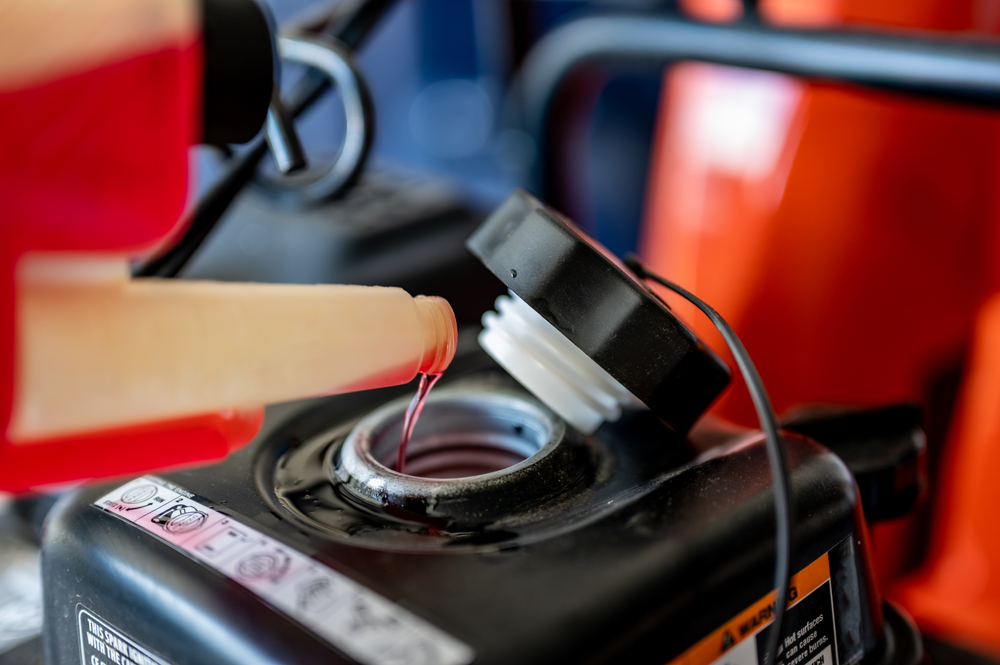 Lost_in_the_Midwest, Shutterstock
Lost_in_the_Midwest, Shutterstock
Myth: Replace Tires When The Tread Is 2/32”
Maintaining sufficient tread on your car's tires is crucial for safe driving. While many guidelines suggest replacing tires when the tread reaches 2/32", this is too worn down and leaves your tires nearly bald. It's safer to replace your tires when the tread depth is 4/32".
Earlier Is Safer
Though replacing tires earlier may seem counterintuitive if you're trying to save money, safety should be your priority. Adequate tire tread is essential for effective braking and stopping. Treads at 4/32" are already worn but much safer than those at 2/32".
Think About Rainy Days
An accident caused by insufficient tread could end up costing far more than a new set of tires. This is especially important in rainy areas, where slick roads increase stopping distances. Investing in new tires now can prevent costly accidents and ensure your safety on the road.
Myth: Do Maintenance At The Dealership
Your car starts depreciating in value as soon as you drive it off the lot, but it should still last for many years. If something breaks, your warranty will cover it for a certain period. Many people think that using an independent auto shop for routine maintenance will invalidate their warranty—this isn’t true.
Protected By Law
Thanks to the Magnuson-Moss Warranty Act of 1975, consumers are protected from deceptive warranty practices, including those by car dealerships. Some tasks, like replacing a recalled part, must be done at the dealership, but these are typically free services. Routine maintenance, such as replacing a belt or rotating tires, can be performed at any reputable shop. Just make sure you keep detailed records of all maintenance to prove you've kept your vehicle in good condition.
Read The Warranty Carefully
However, there are exceptions. For example, if an aftermarket part is incorrectly installed and causes damage, it could void your warranty. Always read your warranty documentation thoroughly to understand what actions might affect your coverage.
Myth: It’s Okay To Use Dish Soap To Wash Your Car
When it comes time to clean your car, you can either visit a specialized car wash facility or clean it yourself at home if you have the space. If you choose the DIY route, use specific car wash materials. Grabbing dish soap from the kitchen might seem convenient, but it can actually damage your car's exterior.
More Dangerous Than It Seems
Dish soap is too abrasive for car surfaces and can strip away the clear wax coating that protects your vehicle from the elements. While some household items, like baking soda, can be used, it's generally best to stick with products specifically designed for cars. These ensure your car stays clean without causing damage.
Final Thoughts
It's important to separate fact from fiction when it comes to car care. Advice from older generations may not always apply to modern vehicles, so always research and verify tips. When in doubt, consult your owner's manual for the best practices.

